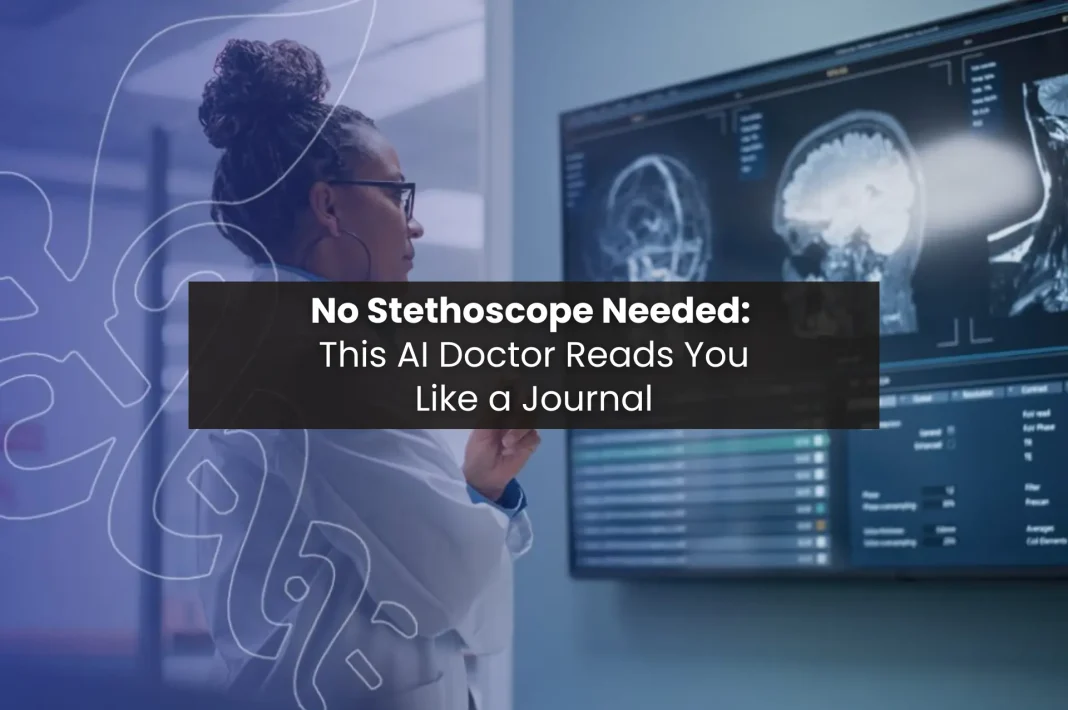Microsoft has introduced a powerful Medical AI tool known as MAI DxO. It addresses complex diagnostic scenarios that often challenge even senior physicians. Microsoft’s AI Health Division created this Medical AI innovation. Moreover, Mustafa Suleyman leads the initiative, engineering it to improve diagnostic precision and workflow efficiency in medicine. The goal of this Medical AI initiative is to support clinicians as they confront difficult cases. By offering a high level of diagnostic insight with the help of AI.
Performance Metrics of Medical AI
Medical AI’s Accuracy
MAI DxO is no longer just playing catch-up with human doctors. According to the Indian Express, in a test involving 304 complex case studies from the New England Journal of Medicine, MAI DxO got it right 85.5% of the time. The doctors managed just 20%. Let that sink in. Medical AI didn’t just do well, it crushed it. These weren’t simple cold-or-flu scenarios either. These were high-stakes, confusing cases that often needed multiple experts to crack.
Cost Efficiency
Medical AI is not only more accurate but also cheaper. MAI DxO cut the average cost of testing by hundreds of dollars per case. It recommended fewer unnecessary procedures and still got to the correct answer faster. For hospitals, that means saved money. For patients, that means fewer bills and quicker diagnoses. This Medical AI is proving that better doesn’t always mean more expensive; it can mean smarter and cheaper, too.
How MAI DxO Works?
What truly sets this MAI DxO apart is how it thinks. Yes, this AI can actually think. Instead of throwing answers at a wall and hoping something sticks, MAI DxO follows a smarter path. It simulates a virtual panel of five AI doctors. Each one takes on a specific role, asking questions, selecting tests, or forming hypotheses. As the process unfolds, they challenge one another, debate possible directions, and refine their conclusions in real time. This dynamic exchange is known as the chain of debate, and it’s precisely what gives Medical AI its sharp diagnostic edge. It mimics the collaborative energy of a real diagnostic room but removes bias and guesswork. Every choice is data-backed. This is a real-life example of the famous American show, “House“. You should watch it if you want to blow your mind.
Integration with Leading AI Models
MAI DxO doesn’t rely on one brain. Instead, it plugs into several of the biggest AI models out there, including OpenAI, Meta, Anthropic, Google, xAI, DeepSeek, and more. This versatility is what makes this Medical AI system truly flexible. Specifically, it’s model-agnostic, meaning it can switch tools on the fly depending on the challenge. Like I do when one AI doesn’t work. Consequently, this lets it tap into the best strengths of each model and create a sharper overall diagnosis. Ultimately, it’s not locked in, and that’s why it works so well across different case types.

Implications for Healthcare Using Medical AI
Reducing Diagnostic Errors
This isn’t just a cool tech demo. In fact, the potential impact of Medical AI is massive. For starters, fewer misdiagnoses mean faster treatment and better outcomes. More importantly, MAI DxO has already proven it can outperform medical experts in cases where delays could be the difference between life and death. That alone makes Medical AI not just worth watching but seriously worth using, and it’s already shaping real-world clinics, like those exploring AI-powered care models in Saudi Arabia’s healthcare system.
Alleviating Physician Workload
Doctors are burnt out. Paperwork is endless. Patients are more complex than ever. Medical AI like MAI DxO can take over the hardest thinking jobs, leaving doctors more time to connect with patients and make big-picture calls. It’s not about replacing them, it’s about letting them focus on what humans do best and reducing the excessive workload.
Improving Patient Outcomes
With faster and more accurate diagnosis comes faster recovery. That’s the goal. Medical AI helps patients get answers quickly so treatment can start sooner. Especially in places with doctor shortages or long queues, this can change lives. Medical AI doesn’t just assist, it accelerates outcomes for better results.
Limitations and Future Prospects
Let’s not sugarcoat it. MAI DxO is still learning. It isn’t ready to hit hospitals today. It’s trained on academic data, not everyday patient chaos. It hasn’t handled messy real-world cases at scale yet. But Microsoft isn’t pretending it’s perfect. They say within five to ten years, they expect near-flawless performance. That’s a big promise, but with current results, MAI DxO is already proving it’s on the path. Superintelligence in healthcare is no longer just science fiction; it’s the next benchmark.
Until we meet next, scroll!
